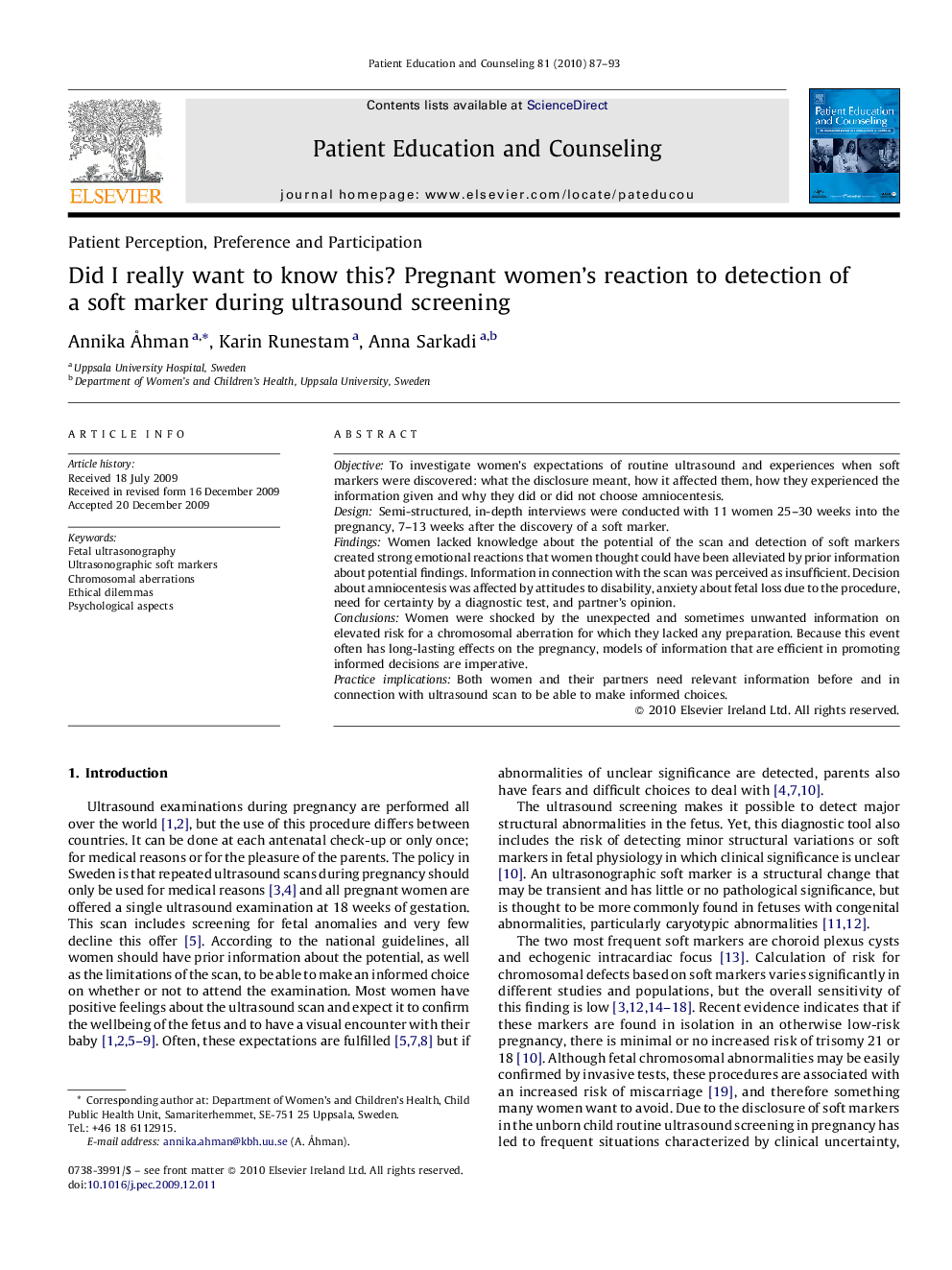| Article ID | Journal | Published Year | Pages | File Type |
|---|---|---|---|---|
| 3814955 | Patient Education and Counseling | 2010 | 7 Pages |
ObjectiveTo investigate women's expectations of routine ultrasound and experiences when soft markers were discovered: what the disclosure meant, how it affected them, how they experienced the information given and why they did or did not choose amniocentesis.DesignSemi-structured, in-depth interviews were conducted with 11 women 25–30 weeks into the pregnancy, 7–13 weeks after the discovery of a soft marker.FindingsWomen lacked knowledge about the potential of the scan and detection of soft markers created strong emotional reactions that women thought could have been alleviated by prior information about potential findings. Information in connection with the scan was perceived as insufficient. Decision about amniocentesis was affected by attitudes to disability, anxiety about fetal loss due to the procedure, need for certainty by a diagnostic test, and partner's opinion.ConclusionsWomen were shocked by the unexpected and sometimes unwanted information on elevated risk for a chromosomal aberration for which they lacked any preparation. Because this event often has long-lasting effects on the pregnancy, models of information that are efficient in promoting informed decisions are imperative.Practice implicationsBoth women and their partners need relevant information before and in connection with ultrasound scan to be able to make informed choices.
